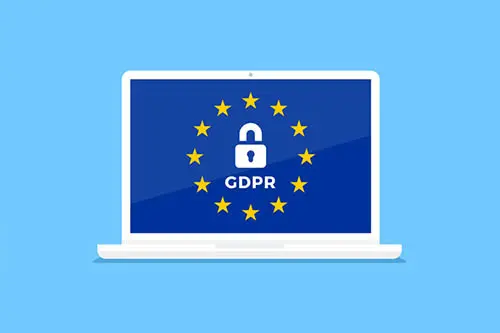The GDPR Era: Why Direct Mail Is Personalized and Privacy Compliant
Data privacy is the topic du jour in the business world. And while there’s no shortage of content and different opinions on this subject, one marketing channel is gaining attention for the opportunity it offers to businesses to communicate effectively with customers and relevant prospects in a legally compliant manner: direct mail.
Background on GDPR
One of the main catalysts driving this conversation is The General Data Protection Regulation, or GDPR, that went into effect this May. In a nutshell, GDPR is the European Union’s new law that sets higher standards on consumer privacy and forces brands and marketers to comply with strict consent and data collection rules. If you’re an American business and think you can automatically disregard these non-U.S. regulations, please consider carefully before turning your head the other way. If your marketing and transactions reach a European audience, then the GDPR’s territorial scope could apply and compliance would be mandatory for your brand. And this legislation has teeth. Infringements could result in steep fines of 20 million euros ($24 million) or 4 percent of annual revenue, whichever is greater. Experts speculate that it’s only a matter of time before GDPR standards become the new worldwide normal for privacy rights. So even if you’re not required to comply now, it wouldn’t hurt to take a proactive look at your data protection and privacy practices. For more information on what GDPR is and how it’s being implemented and enforced, click here.

Four Reasons Direct Mail is a Practical Option in a GDPR World
With GDPR comes new, stringent restrictions specifically for digital advertising. The good news is that direct mail marketing can provide a viable channel for personalized communications with customers.
1. It’s compatible with the requirements of the new law.
According to the Information Commissioner’s Office (ICO) Guide to GDPR, postal marketing is allowed without the “explicit permission” required for digital and email marketing. Businesses can instead make a case of legitimate interest for sending marketing mail.
2. It’s considered more trustworthy and less intrusive than digital.
Studies indicate that consumers prefer mail over digital communication channels. Research from Royal Mail found that 70% of people surveyed said that direct mail made them feel valued and gave them a better impression of the company. Also, when compared to other channels such as email and online display, people prefer the convenience of mail. It doesn’t disrupt other activities and can be saved and viewed at leisure.
3. It’s proven to provide online lift.
According to a survey by the Data & Marketing Association (DMA), 92% of direct mail recipients are driven to an online or digital activity, 87% are influenced to make an online purchase and 54% engage with the brand on social media.
4. It’s easy to keep in touch.
Multiple email addresses, unsubscribes, ad blocking, etc. have hampered the ability to stay engaged with customers online. Because people generally have only one postal address, direct mail marketing is an effective way to consistently reach your audience.
Naturally, GDPR creates mixed feelings in the industry. It might take time before we understand the full effects, but I predict it will ultimately be a positive opportunity for brands and the way they engage with prospects and customers across all channels. As someone who’s been a direct marketing practitioner for nearly 15 years, I believe GDPR underscores the already-established basic principles of our trade: relevancy and consumer best interests. We want our communications to be targeted and well-received while developing loyal and sustainable customer relationships built on trust.
Call a Direct Marketing Specialist at 800.959.8365.

